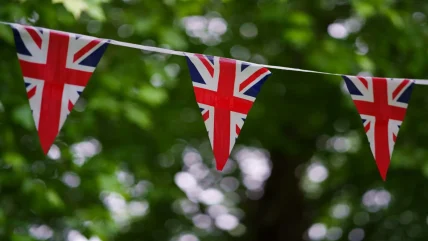
The West Midlands. It’s one of those phrases where everyone knows what it means, but also no-one knows what it means. And I’m not just saying that as a Northerner pretending the Midlands is really the South, which I’ve been known to do on occasion; or to complain about how Southerners think the Midlands is the North.
I’m saying that because if you ask anyone where the West Midlands is, you’ll end up with some variation of “the bit in the middle of England, on the western side, between Wales and about Leicester”. Or, if someone decides to be specific, “the area covered by the ceremonial counties of Herefordshire, Shropshire, Staffordshire, Warwickshire, Worcestershire, and… the West Midlands”.
This is because in the 1972 reorganisation of local government in England and Wales, the government created a county (within the West Midlands region) called “West Midlands”. This covers Birmingham, Coventry, Solihull, Walsall, Dudley, Wolverhampton, and Sandwell. So West Midlands is in the West Midlands, but West Midlands doesn’t contain the whole West Midlands, and it all gets very silly very quickly.
Frankly we need to put a stop to all this nonsense before it gets out of hand. Since my preferred solution – renaming the region in the West of the middle of England “West Mercia” – doesn’t seem likely to gather much support outside of people nostalgic for a return to the days of the Anglo-Saxon heptarchy, we really need to think about naming the county something more sensible.
If, like me, you aren’t from the county, the solution seems incredibly simple and obvious. Birmingham is the biggest city there; it’s the one everyone from different parts of the country has heard of; and it’s the centre of the local economy. The powers that be had the same problem around Manchester and London, and came up with an elegant solution: surely Greater Birmingham ought to do the trick?
It’s at this point that violence is prone to ensue – people from the other six parts of the area will let you know in no uncertain terms that they definitely don’t live in Birmingham. And, to be fair, they have a point – although Birmingham is the biggest economic beast in the area, it’s certainly not the only big beast. The other towns and cities in the conurbation are often centres of industry in their own right, rather than merely being commuter towns for Birmingham.
So in that case, what can we call this area? It covers parts of three historic counties, so we could call it the Tri-County Metropolis, but that sounds boring and American. We could try out an idea that they toyed with for Greater Manchester, and mash together abbreviations of parts of the county names; but Warworcstaff just sounds stupid. So we need to get more creative.
The idea of calling this county “The Black Country” really appeals to me. That’s the common name for the north-western part of the county, down as far as the edge of Birmingham, because of either the rich seam of coal that was found there or the smoke from the region’s industries. Unfortunately, this definitely wouldn’t pass the “my-uncle-who-lives-in-Coventry” test – he very definitely does not feel that he lives in the Black Country, and if I were to propose this I would be banned from all family dinners.
So we could go for something based on other pre-existing geographical features of the area: it’s common, after all, to name settlements based on the rivers on which they sit, so we could go with the Tame Valley, or Tameside. Except that there are five other River Tames in Britain (if you allow for variants in spelling), including the most famous river in the country; and there are already local government units called Tameside (a borough in Greater Manchester) and Thames Valley (a police authority just outside London).
Overall, this seems like it might cause even more confusion than it solves. We could combine it with the main river in Coventry, much like Tyne and Wear in the North-East, and have the county of Sherbourne and Tame – but I don’t like “x&y” names so I’m arbitrarily ruling that out as well. (I can, it’s my article).
What about things that the area is known for? Birmingham, Coventry, and the Black Country are all noted for their history in the Industrial Revolution, and in particular the number of canals that were built to transport their products around the country. Birmingham often boasts that it has more miles of canals than Venice. So why not Canalopolis? Other than, unfortunately, sounding like the title of a 1920s sci-fi vision of a weird future where boats have replaced cars?
Not Canalopolis then.
Which leaves us with a conundrum; but obviously it’s one to which I think I have the solution. As I said earlier, “Greater Birmingham” is definitely out; but Birmingham hasn’t always been known as Birmingham. It used to be known as “Bromwichham”, which is where the modern nicknames Brummagem and Brummie come from, and is why there’s a West Bromwich but no East Bromwich.
So my proposed solution is to call the county “Greater Bromwich”. Not only will it be promoting a historical name that’s fallen out of use but from which words we still use derive (pleasing the part of me that’s obsessed with linguistics); but it’s slightly ambiguous as it could also be referring to West Bromwich in Sandwell, or Castle Bromwich in Solihull, so hopefully won’t annoy people from Coventry and the Black Country, and I’ll still be invited to dinner with my uncle.
Or we could just repeal the 1972 Local Government Act and return the county’s constituent parts to Warwickshire, Worcestershire, and Staffordshire. But I think I’m fighting a losing battle there.






